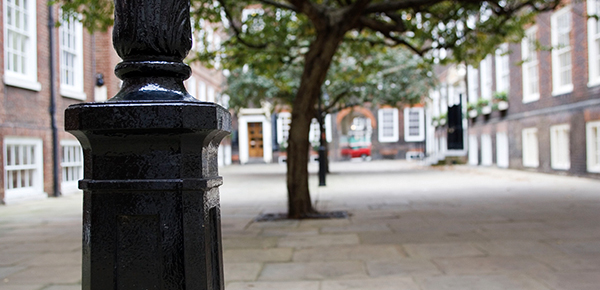Environmental Law News Update
June 24, 2020

In this latest Environmental Law News Update, Charles Morgan, Christopher Badger and Nicholas Ostrowski consider effectiveness of the Bathing Water Directive, the UK Citizens Climate Assembly’s efforts to explore how the UK can achieve net-zero greenhouse gas emissions by 2050 and further caselaw on Aarhus costs capping orders in judicial review.
When bad marks don’t count …
The big problem with bathing water is that sometimes it has sewage in it. That is why the Bathing Water Directive (BWD) is described in its recitals as “closely co-ordinated with” the Urban Wastewater Treatment Directive (UWWTD), which is, via its UK implementation, the principal driver for the regulation of sewage discharges into inland and coastal waters. The latter directive recognises as intended and inevitable, and therefore permits, discharges of untreated sewage from combined sewer overflows (CSOs) – but only “during situations such as unusually heavy rainfall”.
You might have thought, therefore, that a principal purpose and usefulness of the sampling régime created by the BWD would be to capture and evaluate the results of the operation of CSOs at such times – aren’t such discharges the very events whose effect needs to be known? There is however a respectable counter-argument. As well as curtailing the scope for discharges from CSOs, the UWWTD also regulates the continuous discharges to receiving waters that are the normal and inevitable consequence of properly-managed sewage treatment; an example of our maxim that, when it comes to pollution, “Nothing ever goes away; it just goes somewhere else”. In the case of final effluent from sewage treatment, that “somewhere else” is, either directly or via internal watercourses, the sea, with access to which the UK is abundantly blessed. Thus, in the absence of “unusually heavy rainfall”, i.e. during the state of affairs which usually prevails, there is a relatively steady sewage load upon offshore waters whose effect is prevalent and typical. The state of the water during these times is what the would-be bather will usually encounter and what needs to be used for classification purposes.
The argument goes further still. Few, if any, people will seek to bathe during, or in the immediate aftermath of, periods of “unusually heavy rainfall”. Therefore the consequences of these “outlier” events will be felt by very few. Thus, it is in effect positively misleading to assess the quality of the water by reference to data obtained during such events and indeed (as seen from the point of view of the sewerage undertaker responsible) “unfair”.
This argument has found favour with the Environment Agency for many years and given rise to the “wet weather waiver” or, to give it its proper title, “Abnormal Weather Exception”. Indeed it finds official sanction in article 6 of the BWD: “Samples taken during short-term pollution may be disregarded”. However, sight of them is not altogether lost: “When a waiver is granted the result is removed from this site but is still available to the public through our public register” the Environment Agency tells us. So it is still possible to find out just how bad things got (at any rate if that state of affairs corresponded with the taking of a waived sample). Nevertheless, the classification of bathing waters for the purposes of the BWD will be determined without reference to such data. Despite this “bunk-up” (the UK has a relatively high number of overflow events) the UK still comes 25th out of 30 in the quality league tables.
It is against this background that the ENDS Report this week relates that up to 15% of samples are excluded (to the great dismay of the estimable Surfers Against Sewage) and quotes an anonymous Environment Agency officer as stating that the practice “knocks the very thing that causes the problem out of the equation”. But, like the water, maybe things aren’t quite that clear.
UK Citizens Climate Assembly: Post lockdown steps to aid economic recovery should drive progress to net zero target
The UK Citizens Climate Assembly is a collection of 108 individuals selected to represent the UK’s population in terms of demographics and levels of concern about climate change. The Assembly met face to face for three weekends in Birmingham before reorganising itself online for a further three weekends across April and May. Its objective is to explore how the UK should reach its legally-binding target of net-zero greenhouse gas emissions by 2050.
Assembly members were also asked to discuss the changed context for reaching net zero created by the Covid-19 pandemic and the resulting lockdown and economic impacts.
The assembly has released its ‘Interim Briefing’. Key findings include:
- 79% of assembly members ‘strongly agreed’ or ‘agreed’ that “Steps taken by the government to help the economy recover should be designed to help achieve net zero.”
- 93% of assembly members ‘strongly agreed’ or ‘agreed’ that “As lockdown eases, government, employers and/or others should take steps to encourage lifestyles to change to be more compatible with reaching net zero.”
One interesting quote taken from the discussion of assembly members was as follows:
“Well it seems pretty silly to try [to] save the economy whilst shirking from problem solvers [albeit]…because of the costs. I understand we need to hopefully tackle this economic crisis, but it would make sense to incorporate both issues into one as we have made an agreement to hit net zero as that is beneficial for the future. I don’t want to be known as a coward when faced with these issues and bury my head in the sand. It just doesn’t make the issues change or go away.”
The assembly’s main recommendations on the path to net zero, on the topics of how we travel, heat and energy use in the home, what to buy, what we eat and how we use the land, where our electricity comes from and removing greenhouse gases from the atmosphere, will be presented in full in the assembly’s final report to be published in September this year. Judging from the detail provided in the Interim Briefing, that report promises to be an insightful guide into the feelings of the general public.
The Interim Briefing can be found here
Further caselaw on Aarhus costs capping orders in judicial review
In R (Bertoncini) v London Borough of Hammersmith and Fulham HHJ Bird sitting in the Planning Court considered a discrete but interesting point relating to costs capping in judicial review cases, namely the question of whether a developer, acting as an interested party, can apply to the court to increase the size of a costs cap.
By way of a brief recap, as our knowledgeable readers will know, in order to implement the Aarhus Convention, the courts will impose a costs cap in appropriate environmental judicial and statutory review cases of £5,000 per Claimant (if the Claimant is an individual) and £10,000 per Claimant (if the Claimant is an organisation). Thus, a public-spirited Claimant’s costs exposure is limited.
Plainly, the presence of such a costs cap can be extremely aggravating for local authorities and developers who may spend comfortably more than £5,000 defending a planning or environmental decision and who have to swallow this expense even if the judicial review fails. However, that costs cap can be varied under CPR 45.44 so long as doing so would not make the costs ‘prohibitively expensive for the claimant’. That assessment is to be performed by a judge after considering the Claimant’s financial circumstances and other relevant matters.
This may be of particular significance for developers of major projects or regulated businesses who may intervene in important and substantial ways in judicial reviews and whose participation into a judicial review may be of great assistance in ensuring that the court understands the issues at play. Such interventions may well cost substantially more than the legal costs expended by local authorities and other public body defendants who will enjoy in-house legal teams.
Bertoncini considered whether CPR 45.44 permitted an Interested Party to apply to amend the costs cap or whether only the Claimant or Defendant had that power. After considering the rules in detail and adopting a purposive interpretation of the CPR HHJ Bird confirmed in Bertoncini that Interested Parties can also ask that the court vary the cap and increase the costs cap.
On the facts of Bertoncini the costs cap was increased at the Interested Party’s application from £5,000 to £20,000. As the application for judicial review had failed the Defendant local authorities’ costs of £4,991 was ordered to be paid in full and the Interested Party’s costs application was assessed at £12,000. Developers, regulated businesses or other entities involved in judicial and statutory reviews as interested Parties should be aware of this important addition to their armoury.
UKELA, Friday 26th June
In time-honoured fashion, Six Pump Court is pleased to be hosting ‘drinks’ at this year’s UKELA Conference. Our inspiration is to add some personal value to the virtual Conference. One of the joys of the annual conferences has been the opportunity to chat, swap ideas (both good and bad), and share personal news. This year has of course been an extraordinary one for all of us.
Sadly Chambers’ world-beating mobile drink delivery system isn’t quite up-and-running yet, so we won’t be able to provide actual drinks on the night. We can offer to take names so that attendance comes with a solemn promise of a real drink – just as soon as we’re all allowed back into the pubs, and our track and trace app is working.
For those of you who are attending, it would be a pleasure to see you at the end of the day. Our e-landlords will be Charles Morgan, Natasha Hausdorff, Chris Badger, Mark Davies, Richard Banwell, Laura Phillips, Nick Ostrowski, Mark Beard and William Upton QC.
Please also view our Covid-19 Guidance Tracker and Blog – new resources set up by the Regulatory team to enable businesses and legal professionals to more easily navigate to the applicable Covid-19 guidance that is most relevant to their area of work.
To keep up-to-date follow us on Twitter @6pumpcourt or click here to subscribe to the mailing list. If you have any comments or suggestions please contact Bridget Tough at bridget.tough@6pumpcourt.co.uk






